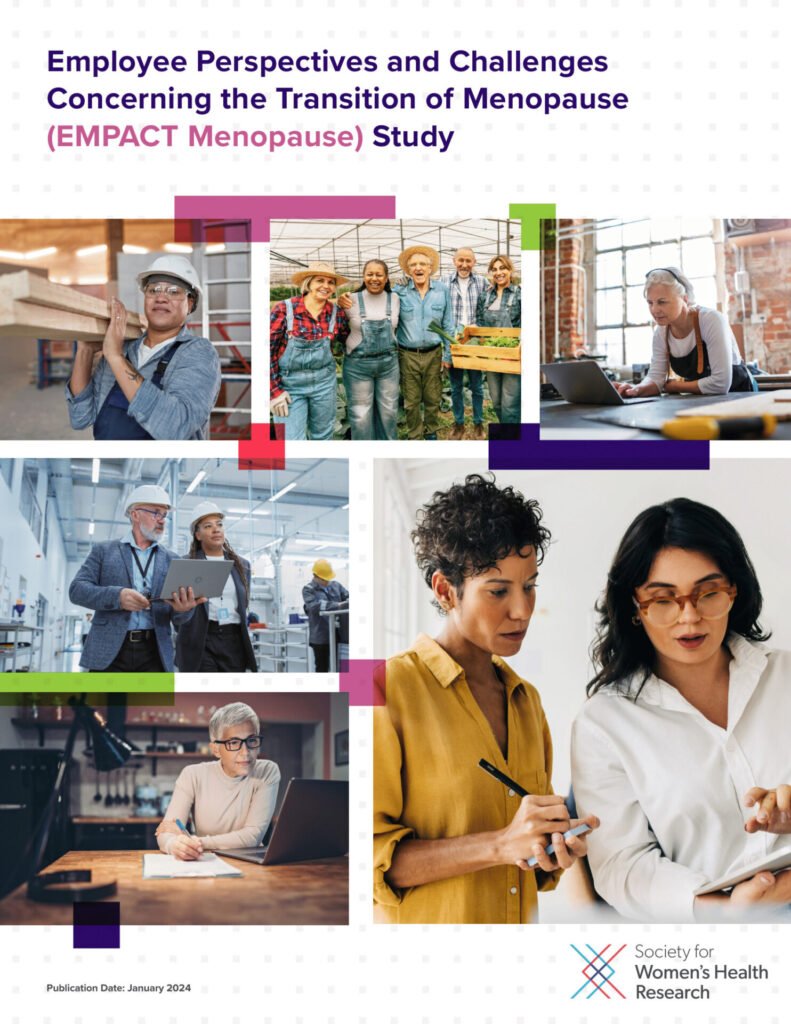
Women’s health has been under-funded, under-researched, and misunderstood for decades. By refocusing our resources and goals to prioritize understanding women’s health and by collecting women’s health data often and effectively, we can close these gaps.
As a national thought leader dedicated to advancing women’s health and promoting research on sex differences to optimize women’s health, the Society for Women’s Health Research (SWHR) plays a critical role in identifying clinical and research gaps; raising awareness of diseases, conditions, and life stages that differently, disproportionately, or exclusively affect women; and promoting policies that could positively shape health outcomes for women. Over its more than 35-year history, SWHR has been advancing women’s health through its core functions of science, policy, and education and bringing much-needed attention to the field of women’s health – and women’s health data.
For example, in 2024, SWHR released findings from its Employee Perspectives and Challenges Concerning the Transition of Menopause (EMPACT Menopause) Study, which aimed to better understand the workplace experiences of individuals who have entered or completed the menopause transition, as well as their coworkers and employers.

This study was paramount in collecting data across an under-researched women’s health area – menopause – and adding to growing evidence base around this universal life stage, which has far-reaching economic, social, and health care implications for women, especially during their working years.
Among the findings of SWHR’s EMPACT Menopause Study were that 61% of employees and 70% of supervisors indicated no formal policies were in place to support menopause in their workplaces, and 36% of employees and 27% of supervisors were unsure if such resources were available.
Of those surveyed, 59% of women reported feeling uncomfortable asking for accommodations, and only 31% of women felt comfortable talking about their menopause symptoms or experiences at work. Read the full study results here.
It is only once we’ve collected and processed women’s health data that we can truly know where the gaps stand, and we can apply the resources to close them.
Building on the data from the EMPACT Menopause Study, SWHR has released a series of workplace wellness resources specific to support for women in the menopause transition, including the pair of Menopause Workplace Resource Guide for Managers and Menopause Workplace Resource Guide for Women, the Supporting the Menopause Journey in the Workplace: A Social Media Toolkit, and the Roadmap to Menopause-Friendly Workplaces poster.
Menopause is just one of several women’s health areas that is impacted by a dearth of health data; many gynecologic health conditions such as endometriosis and polycystic ovary syndrome (PCOS) as well as autoimmune disease are associated with long diagnostic timelines or abstract symptoms that make diagnosis – much less treatment – difficult for women. SWHR is committed to addressing women’s health outcomes in these areas as well. Read more about SWHR’s wide range of women’s health focus areas here.
This October during Menopause Awareness Month, explore the EMPACT Menopause Study and help us bring attention to one of the many facets of the women’s health gap – and, ultimately, the important roles that research, awareness, and data have in closing the women’s health gap.